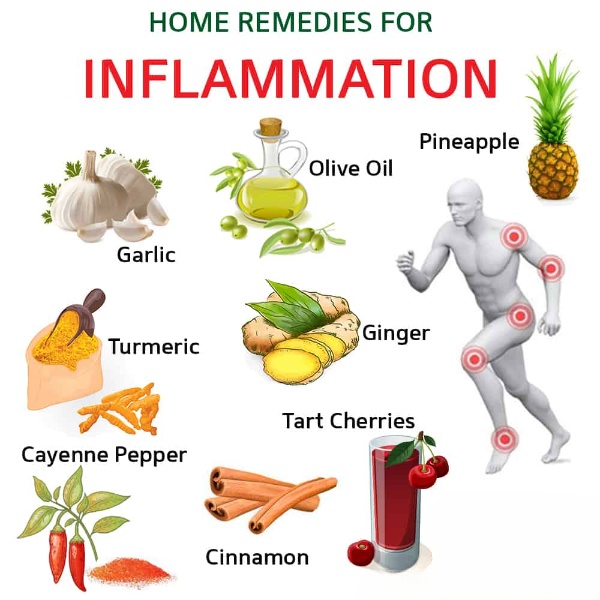How To Completely Restore Your Health And Well-Being At Any Age

We all want to feel our best and enjoy good health throughout our lives. But sometimes, despite our best efforts, our health can start to decline. If you’re looking for ways to restore your health and well-being, this blog post is for you!
The following is a list of tips on how to completely restore your health and well-being at any age.
1. Get regular exercise.
One of the most important things that Americans can do to protect their health is to get regular exercise. Exercise has been shown to be beneficial for overall health, and it can help to reduce the risk of developing chronic diseases such as heart disease, stroke, and diabetes.
The American Heart Association recommends that adults get at least 150 minutes of moderate-intensity aerobic activity per week, or 75 minutes of vigorous-intensity aerobic activity per week.
2. Eat a healthy diet.
A healthy diet is important for overall health and well-being. Eating a diet that is high in fruits, vegetables, whole grains, and healthy fats can help to reduce the risk of developing chronic diseases such as heart disease, stroke, and diabetes.
1. Eat more fruits and vegetables.
Fruits and vegetables are packed with nutrients that are essential for good health. Make sure to include a variety of both in your diet.
2. Choose whole grains.
Whole grains are a great source of fiber and other nutrients that are essential for good health. Choose whole grain breads, cereals, and pastas.
3. Limit saturated and trans fats.
Saturated and trans fats can raise your cholesterol levels and increase your risk of heart disease. Choose leaner meats and lower-fat dairy products.
4. Eat fish.
Fish is a good source of protein and omega-3 fatty acids, which are beneficial for your heart. Eat fish at least twice a week.
5. Limit salt.
Too much salt can raise your blood pressure. Limit your salt intake to no more than 2,300 milligrams per day.
6. Drink alcohol in moderation.
Drinking alcohol in moderation can actually have some health benefits. However, excessive drinking can lead to serious health problems.
7. Get regular exercise.
Exercise is an important part of a healthy lifestyle. It can help you maintain a healthy weight, reduce your risk of chronic diseases, and improve your overall health.
8. Don’t smoke.
Smoking is one of the leading causes of preventable death in the United States. If you don’t smoke, don’t start. If you do smoke, quit.
9. Get enough sleep.
Most adults need 7-8 hours of sleep each night. Getting enough sleep can help you maintain a healthy weight, reduce stress, and improve your overall health.
10. Visit your doctor.
Regular checkups with your doctor can help prevent health problems before they start. Be sure to schedule regular checkups and screenings, especially as you get older.
Following these healthy diet tips, you can help restore your health and well-being at any age. Remember, a healthy diet is all about making smart choices that help your body function at its best.
3. Get adequate sleep.
Sleep is a vital part of our overall health and well-being, yet many of us don’t get enough sleep. According to the National Sleep Foundation, adults need seven to nine hours of sleep each night. But for many of us, that’s not happening. There are a number of reasons why we don’t get enough sleep. Maybe we have young children and are up several times a night. Or we’re working long hours and our job is very demanding. Whatever the reason, not getting enough sleep can have a significant impact on our health.
Lack of sleep can lead to a number of health problems, including obesity, diabetes, heart disease, and stroke. It can also affect our mood, energy levels, and ability to concentrate. In fact, sleep deprivation has been linked to a number of accidents, including car accidents and industrial accidents.
So how can we make sure we’re getting enough sleep?
There are a few things we can do to improve our sleep habits. First, we can create a bedtime routine and stick to it. This means going to bed and waking up at the same time each day, even on weekends.
We can also create a relaxing environment in our bedroom by making sure the temperature is comfortable and the room is dark and quiet. And we should avoid using electronic devices in the bedroom, as the light from these devices can interfere with our sleep.
Finally, we can try to wind down before bed by reading or taking a bath. This can help our body and mind relax and prepare for sleep.
If you’re having trouble sleeping, talk to your doctor. There are a number of treatments available for sleep disorders. And if you’re concerned about your sleep habits, there are online tools, like the National Sleep Foundation’s Sleep Diary, that can help you track your sleep and identify patterns.
Getting enough sleep is vital to our overall health and well-being. So make sure you’re getting the sleep you need to stay healthy and happy.
4. Avoid tobacco use.
When it comes to your health, tobacco use is one of the worst things you can do. Tobacco use is a leading cause of death and disease in the United States, and it’s a major contributor to heart disease, cancer, and other serious health problems.
There’s no safe level of tobacco use, and even exposure to secondhand smoke is dangerous. If you use tobacco, the best thing you can do for your health is to quit.
Quitting tobacco is hard, but it’s worth it. People who quit smoking live longer and feel better. They have more energy and breathe more easily. They also reduce their risk of heart disease, cancer, and other smoking-related health problems.
If you’re ready to quit, there are many ways to get help. Your doctor can prescribe medications that make it easier to quit, and there are many counseling and support programs available.
You don’t have to do it alone – get help and quit tobacco for good.
5. Limit alcohol consumption
When it comes to alcohol, moderation is key. Too much alcohol can take a toll on your health and well-being, no matter your age. If you want to restore your health and improve your well-being, limiting your alcohol consumption is a good place to start.
There are many reasons to limit your alcohol intake, even if you’re not an alcoholic. For one, alcohol is a diuretic, which means it causes your body to lose fluids. This can lead to dehydration, which can in turn cause headaches, fatigue, and other health problems.
Alcohol also interferes with the absorption of essential nutrients, including vitamins and minerals. This can lead to deficiencies in these nutrients, which can further contribute to health problems.
In addition, alcohol consumption can negatively impact your sleep. This is because alcohol disrupts the normal sleep cycle, making it more difficult to fall asleep and stay asleep. This can lead to fatigue and other health problems.
Finally, alcohol consumption can contribute to weight gain. This is because alcohol contains empty calories that can add up over time. In addition, alcohol can increase your appetite, making you more likely to overeat.
If you want to restore your health and improve your well-being, limiting your alcohol consumption is a good place to start. There are many benefits to moderate alcohol intake, including improved sleep, increased nutrient absorption, and weight loss. So, if you’re looking to improve your health, cutting back on alcohol is a great place to start.
6. Manage stress.
Stress is an inevitable part of life. At any given age, we all experience some level of stress. Whether it’s from our job, our relationships, or our finances, stress can take a toll on our health and well-being.
While some stress is normal, too much stress can be damaging to our health. When we’re constantly under stress, our bodies go into “fight or flight” mode, which can lead to a host of health problems.
Fortunately, there are things we can do to manage our stress and restore our health and well-being. Here are some tips to help you get started:
1. Identify your stressors: The first step to managing your stress is to identify what’s causing it. Once you know what’s causing your stress, you can start to find ways to deal with it.
2. Make time for yourself: It’s important to make time for yourself, even if it’s just a few minutes a day. Doing things you enjoy, such as reading, spending time in nature, or listening to music, can help you relax and reduce your stress levels.
3. Exercise: Exercise is a great way to relieve stress. Not only does it release endorphins, which can improve your mood, but it also helps to reduce cortisol, the stress hormone.
4. Get enough sleep: When you’re tired, your body is more likely to feel stressed. Make sure you’re getting enough sleep each night so you can feel rested and refreshed.
5. Eat healthy: Eating a healthy diet can help reduce stress levels. Include plenty of fruits, vegetables, and whole grains in your diet, and limit processed foods and caffeine.
6. Take breaks: When you’re feeling overwhelmed, take a few minutes to yourself to relax and rejuvenate. Take a hot bath, read your favorite book, or take a walk outdoors.
7. Practice relaxation techniques: There are many relaxation techniques you can try to help reduce stress. Some popular techniques include yoga, meditation, and deep breathing.
8. Connect with others: Spending time with loved ones, or talking to a friend or counselor, can help you feel connected and reduce stress.
9. Seek professional help: If you’re struggling to manage your stress on your own, don’t hesitate to seek professional help. A therapist can help you identify and deal with your stressors.
Managing stress is an important part of maintaining our health and well-being. By taking steps to reduce our stress levels, we can improve our physical and mental health.
7. See your doctor regularly.
Regular doctor visits can help you stay on top of your health, identify potential health concerns early, and get the treatments you need to maintain your health and well-being.
Your doctor can also provide guidance on making healthy lifestyle choices, such as eating a healthy diet, getting regular exercise, and managing stress. Taking these steps can help you prevent or manage chronic conditions, such as heart disease, diabetes, and high blood pressure.
No matter your age, it’s important to see your doctor regularly to maintain your health and well-being. Schedule an appointment today to get started on the path to better health!
Conclusion – How To Completely Restore Your Health And Well-Being At Any Age
The steps above are just a few things that you can do in order to completely restore your health and well-being at any age. Just remember to always consult with your physician before starting any new health regimen. Also, be sure to listen to your body and give it what it needs in order to heal. With a little bit of effort, you can be on your way to a healthier and happier you.

92 Comments
Comments are closed.